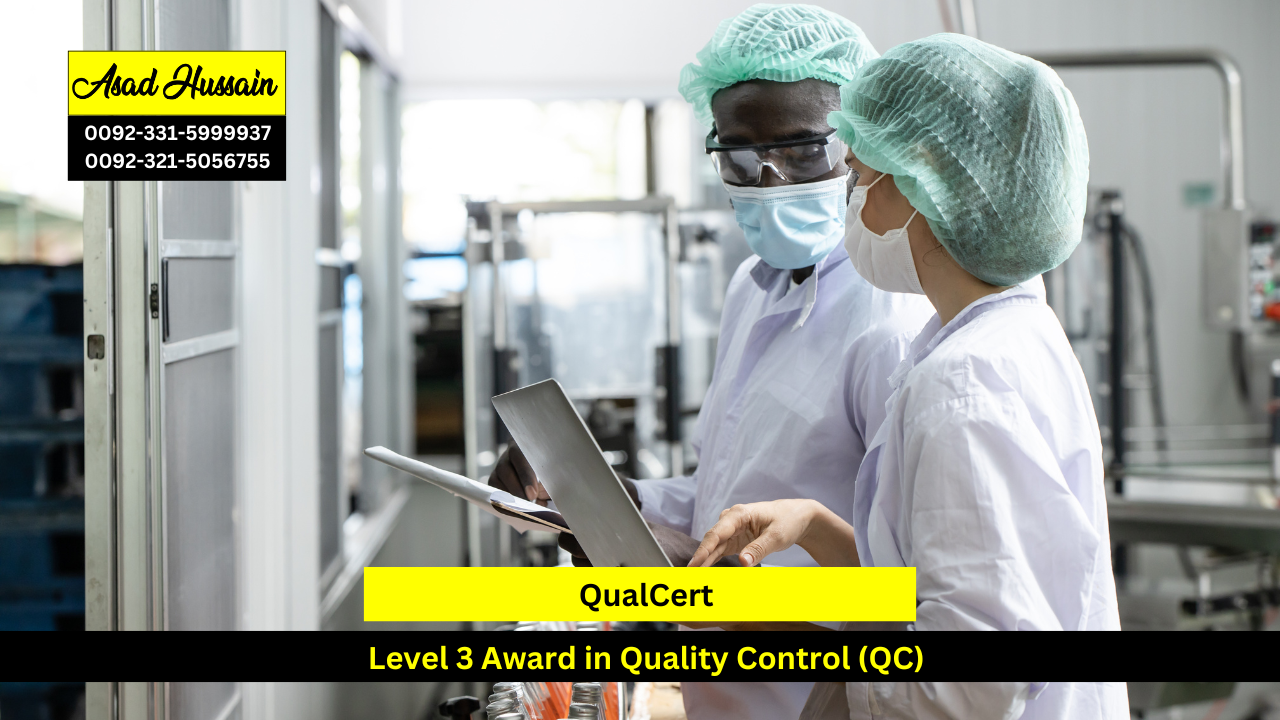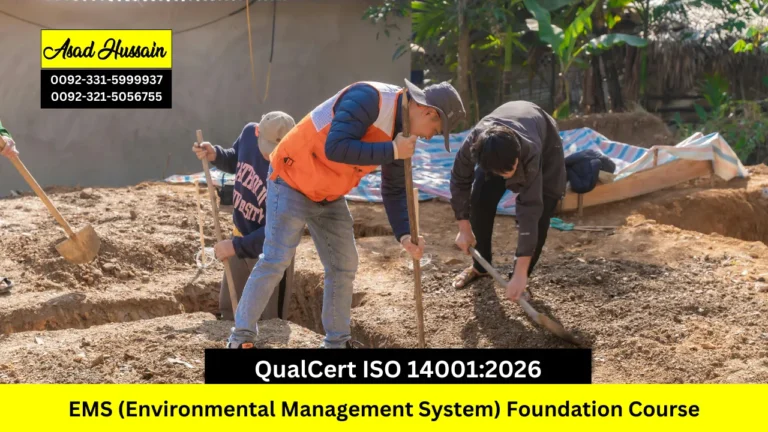In today’s competitive business landscape, maintaining high standards of quality is paramount for any organization. Whether you’re in manufacturing, healthcare, or service industries, effective quality control (QC) is essential to ensure that products and services meet or exceed customer expectations. For professionals seeking to enhance their skills and contribute to their organization’s success, the Level 3 Award in Quality Control (QC) is an excellent qualification to pursue.
The Level 3 Award in Quality Control is a recognized qualification designed for individuals who are involved in quality assurance and quality control roles within their organizations. This award provides learners with a comprehensive understanding of quality control principles, techniques, and best practices. It equips them with the knowledge and skills needed to implement and manage effective QC processes.
To achieve the Level 3 Award in Quality Control, candidates typically need to complete a training program offered by accredited training providers. The program may include classroom-based learning, online modules, practical assessments, and examinations. Successful completion of the program and assessments will result in the award of the Level 3 qualification.
The Level 3 Award in Quality Control (QC) is an invaluable qualification for professionals dedicated to maintaining and improving quality standards within their organizations. By equipping learners with the necessary knowledge and skills, this award not only enhances individual careers but also drives organizational success through effective quality control practices. If you’re looking to make a significant impact in your field and advance your career in quality management, the Level 3 Award in Quality Control is a step in the right direction.
Program Highlights
Mandatory Units
Module 1: Advanced Quality Control Concepts
Module 2: Statistical Process Control (SPC)
Module 3: Quality Control Tools and Techniques
Module 4: Quality Control in Complex Industries
Module 5: Quality Management Systems (QMS)
Module 6: Advanced Statistical Analysis
Module 7: Quality Control Auditing and Compliance
Module 8: Leadership in Quality Control
- Educational Background: Typically, participants should have a high school diploma or its equivalent (such as a GED). Some programs may require a minimum level of education, such as completion of secondary education, to ensure participants have basic academic skills.
- Language Proficiency: Proficiency in the language of instruction (usually English) is essential to comprehend complex course materials, actively participate in discussions, and complete written assignments.
- Age Requirement: Participants must be at least 18 years of age to enroll in this course.
- Industry Experience: While not always required, some programs may prefer or recommend that participants have some prior industry experience related to the field they intend to study. This can provide valuable context for understanding quality control principles.
- Level 2 QC Award (Recommended): While not mandatory, completion of a Level 2 QC award or equivalent foundational training is highly recommended.
Advanced Quality Control Concepts
- Understanding Core QC Concepts: Demonstrate a thorough understanding of advanced quality control principles and their applications.
- Quality Metrics and Indicators: Identify and apply key quality metrics and indicators used in advanced QC practices.
- Integration of QC in Business Processes: Evaluate how advanced quality control integrates with overall business processes and strategies.
Statistical Process Control (SPC)
- SPC Fundamentals: Explain the fundamental concepts and importance of Statistical Process Control in quality management.
- Control Charts: Develop and interpret various types of control charts to monitor process performance.
- Process Capability Analysis: Conduct process capability analysis and understand its implications for process improvement.
Quality Control Tools and Techniques
- QC Tools Proficiency: Utilize key quality control tools such as Pareto charts, cause-and-effect diagrams, and histograms.
- Problem-Solving Techniques: Apply problem-solving techniques to identify, analyze, and address quality issues.
- Implementation of QC Tools: Demonstrate the ability to implement quality control tools effectively within different organizational contexts.
Quality Control in Complex Industries
- Industry-Specific QC Practices: Understand the specific quality control requirements and practices in complex industries such as healthcare, aerospace, and pharmaceuticals.
- Regulatory Compliance: Evaluate the role of regulatory standards in maintaining quality control in complex industries.
- Risk Management: Assess and manage risks associated with quality control in high-stakes environments.
Quality Management Systems (QMS)
- QMS Frameworks: Describe the key components and frameworks of Quality Management Systems, including ISO 9001.
- QMS Implementation: Develop strategies for the effective implementation and maintenance of QMS in an organization.
- Continuous Improvement: Promote a culture of continuous improvement through effective use of QMS principles.
Advanced Statistical Analysis
- Statistical Methods: Apply advanced statistical methods to analyze quality data and derive meaningful insights.
- Data Interpretation: Interpret complex statistical data to inform quality control decisions.
- Software Utilization: Utilize statistical software tools to perform advanced quality control analysis.
Quality Control Auditing and Compliance
- Audit Principles: Understand the principles and processes of quality control auditing.
- Compliance Standards: Identify and ensure compliance with relevant quality standards and regulations.
- Audit Execution: Conduct effective quality control audits and report findings for continuous improvement.
Leadership in Quality Control
- Leadership Skills: Develop leadership skills specific to managing quality control teams and processes.
- Strategic Planning: Create strategic plans to enhance quality control practices within an organization.
The Level 3 Award in Quality Control (QC) is tailored for professionals actively engaged in or aspiring to enter the field of quality management. This course is ideal for quality control technicians who perform routine inspections and testing, quality assurance officers responsible for developing and maintaining quality management systems, and production supervisors who oversee manufacturing processes to ensure adherence to quality standards. Additionally, it is highly beneficial for individuals aiming to advance to managerial roles in quality control, as well as professionals in complex industries like healthcare, aerospace, and pharmaceuticals who need to comply with stringent quality regulations. Overall, this course is designed for those committed to enhancing their expertise in quality control and contributing to the continuous improvement of their organizations.







